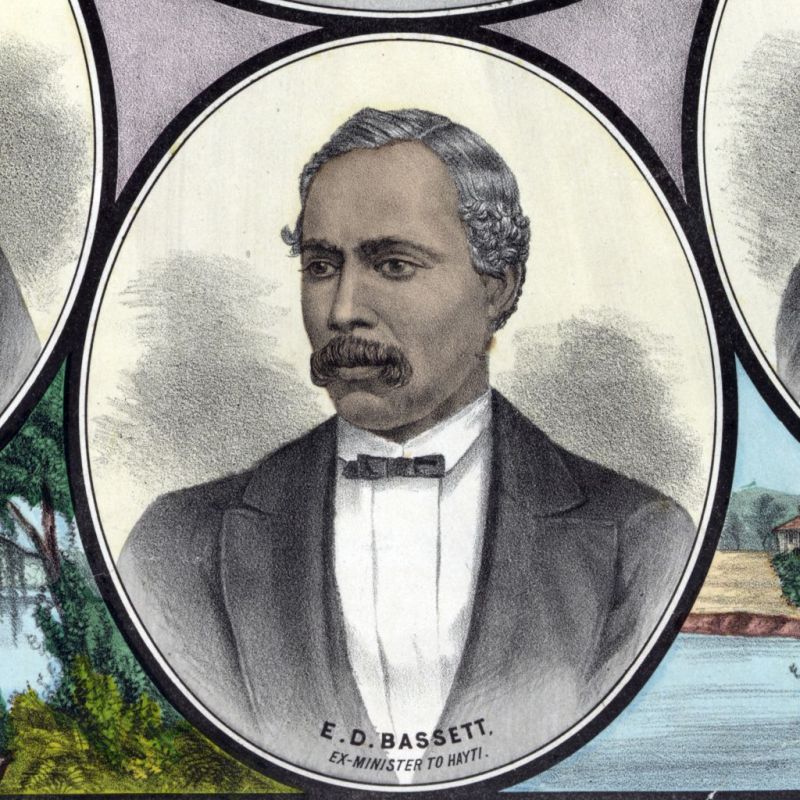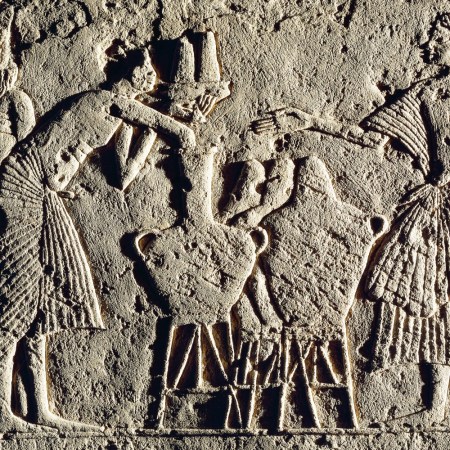On a hot day in June 1869, a steamship called The City of Port-au-Prince waited at the docks in New York City to play a small part in history.
Boarding the ship that day, along with his family and surrounded by dignitaries, was Ebenezer Bassett, the first African-American to be named as a diplomat for the U.S. – just a few years after the end of the Civil War.
Bassett, whose grandfather was a slave before winning his freedom by serving in the Revolutionary War, had been named minister resident of Haiti by President Ulysses S. Grant.
Bassett, already the first African-American graduate of what’s now Central Connecticut State University, had been a vocal anti-slavery activist along with the likes of Frederick Douglas and helped recruit black soldiers for the Union Army during the Civil War. After the war’s end in 1865, Grant “looked to fill government positions that had previously excluded African-Americans, opening opportunities at the Department of State for the first time,” a profile of Bassett in the State Department’s magazine says.
Bassett’s appointment was confirmed by an overwhelming vote in the U.S. Senate.
Douglas that year wrote to Bassett saying that his accomplishments formed an “important point in the history of our progress and upward tendency.”
But Haiti was hardly a plum post for the young diplomat. When Bassett was appointed, the island nation was in the midst of its own civil war, just the latest crisis that included famines and devastating hurricanes.
“The 36-year-old diplomat tried to negotiate between the collapsing Haitian government and rebel forces, while trying to save civilians who were trapped in the fighting,” the State Department said.
Bassett’s bosses back in Washington had ordered that civilians seeking safety during the turmoil could not seek refugee status, but that didn’t stop thousands of them from taking cover in Bassett’s residential compound.
But Bassett was hundreds of miles away from Washington, and with the lives of women and children in the balance, negotiated directly with the rebels for their safety.
Once when the rebels demanded the identities of all the civilians in order to find out if any enemies were among them, Bassett refused.
“You will pardon me for reminding that the holding of women and children as hostages is repugnant to modern civilization and especially to the government of the United States,” he’s said to have replied.
Though Washington, D.C. might have objected to Bassett embroiling himself, and by extension the U.S., so far into the conflict, Bassett took advantage of late 19th century communications.
“Dispatches had to be sent by ship and took weeks,” a Connecticut history says. “Bassett often found it expedient to do what he felt was right and ask for forgiveness after the fact.”
Bassett eventually prevailed and “personally escorted the refugees to the center of the capital to return them to their homes, saving thousands from execution,” the State Department said.
Bassett went on to serve eight years in Haiti, during which time he “faced several similar incidents.”
“With courage and leadership, he resolved many crises and prevented further conflicts, helping pave the way for future diplomatic appointments of other minorities,” the State Department said.
After Grant’s presidency was over, Bassett returned to New York where he continued civic activism and later served as Vice Consul General for Haiti at the request of the Haitian president.
Bassett died on Nov. 13, 1908 in Brooklyn.
“Largely forgotten today, Ebenezer D. Bassett triumphed over the obstacles of race and inequality in the 19th century to live an exemplary life devoted to educating and serving others as a pioneer black educator, the first black diplomat of the United States, and a quiet American hero,” the Connecticut history says.
This article appeared in an InsideHook newsletter. Sign up for free to get more on travel, wellness, style, drinking, and culture.

























